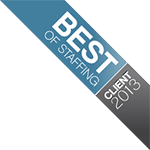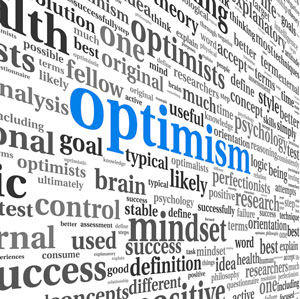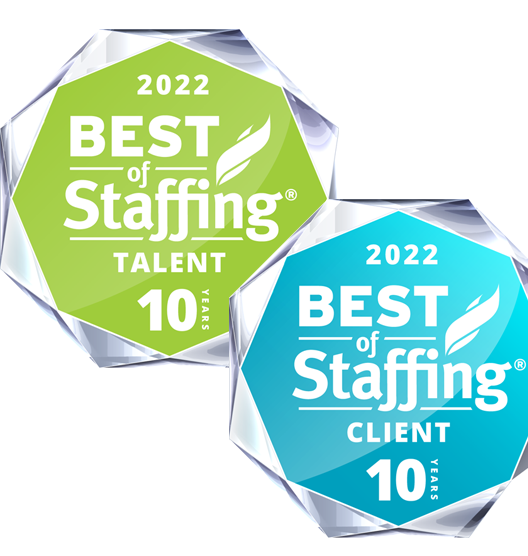Hire for Attitude, Train for Skill
|
 |

We live and work in a world where survival depends on employing people who will do whatever it takes to keep costs low, quality high and continually be on the lookout for new ways to add value to the customer. This requires more than compliance. It requires people who are committed to taking personal responsibility for offering sensational service. It also requires people who are willing to think and act like owners.
With information and technology growing at an explosive rate, many companies have made the mistake of hiring technically gifted people under the assumption that they can re-engineer any bad attitudes through sophisticated training programs. How many colleagues do you know today who are suffering from the consequences of poor hiring decisions? As customers become more educated, more sophisticated, and more demanding, the future will belong to those companies that hire people who are already predisposed to assuming ownership for service, productivity and profits, people with the right kinds of attitudes!
Even in the most technical jobs, skills are only half the package. For example, Southwest Airlines, recently rated by Fortune Magazine as the best place to work in America, requires every pilot to have a 737-Type Rating before he or she is considered for hire. This rating, given by the Federal Aviation Administration, essentially says a pilot is qualified to be a captain of a Boeing 737. This means that all first officers are qualified to fly as captains, even though it will take about six years to achieve captain status. However, technical competence is only half of what Southwest Airlines looks for when it hires new pilots. In addition to a special type rating, Southwest is also looking for the right kinds of attitudes. Southwest knows what happens when a pilot with a lousy attitude boards the aircraft. The pilot's bad attitude spills out onto the flight crew who in turn pass that toxic attitude onto, you guessed it, the customers. Now, if your point of differentiation is sensational service, this doesn't set the flight crew up for much success. On an airplane a captain carries the weight of a CEO; his or her attitude sets a powerful tone for the entire trip and the customer's overall service experience.
Why is rigorous hiring critical to your success?
The hiring patterns you establish today will determine the kind of culture, the kind of service standards, and the kind of reputation you have tomorrow. Will it be a culture you are excited about or one you simply tolerate? Will it be a reputation you are proud of or one for which you are always making excuses? Also, what people know changes a lot faster than who people are. Think about it, what you know will change through experience, education, and on-the-job training. But who you are is less likely to change as fast. So hiring someone with the HOPE that you can change their core character and the fundamental values that shape their attitude when they come to work for you is a bad hiring decision. Many marriages fail today for the same reason. We like some things but not everything about our potential spouse, and we hope that when we finally tie the knot, we can change'm! Well, we all know how flawed that thinking is (either through our own personal experience or through knowing someone who has tried it and failed).
Finally, in a world with limited resources and more work than ever, we cannot afford to make hiring mistakes. In each day, there is a finite amount of time. We can spend that time on personnel problems that emanate from bad hiring decisions or we can spend that time on things that add value to our customers and widen the gap of competitive advantage.
Why is it difficult?
Perhaps it's difficult to hire the best because we haven't been through the rigorous process of defining what the best looks like. Hiring people with world-class attitudes starts with identifying the people in your own organization who already have the kind of attributes you want. Find the superstars in your company. Ask their customers, employees, peers, and superiors what makes them so effective, so easy to work with, and so competent. Then build a profile of the common denominators that make each superstar successful and hire new people based on those attitudinal profiles.
How do you attract people with the right kind of attitude?
Clever recruiting ads designed with a creative flair entice the right kinds of people to apply at Southwest Airlines. For example, envision a wildly scribbled picture of Tyrannosaurus Rex with a teacher's note on it, "Brian, please try to color inside the lines!" Southwest provides a caption that reads, "Brian shows an early aptitude for working at Southwest Airlines. At Southwest Airlines you get check pluses for coloring outside the lines!" Southwest isn't necessarily looking for conventional thinkers who have a lot of previous airline experience. They are looking for innovative people who challenge conventional wisdom and think outside of the box.
Another ad shows a picture of a computer disk, with a caption that reads, "Southwest's Systems Department is looking for people who have a lot of internal drive." These ads cause you to stop, think, and even laugh. They are very unconventional, yet successful in attracting people with the right kinds of attitudes to apply for positions at Southwest Airlines.
Next time you've got a position open, ask yourself, "Do our recruiting ads reflect the kind of attitudes we are looking for?" If the answer is no, "Go Nuts," "color outside the lines," and get a little more creative in the way you attract people with both the skills and the attitudes you need to more successfully compete with and differentiate your business from the competition.
How do you determine if people have the "right stuff"?
How do you screen for attitudes such as unselfishness, flexibility, fun, initiative, or a propensity to take risks? Start by designing targeted questions to get at the specific attitudes you want. For example, if you are looking to hire someone who shows a history of "doing whatever it takes" you could say, "Tell me about a time when you broke the rules, flexed a policy, or went above and beyond the call of duty to meet a customer's need?" Try to avoid projecting, telling the applicant that a willingness to do whatever it takes is important in our company, and then asking the hypothetical question, "So what would you do to go above and beyond the call of duty to satisfy a customer?"
Keep in mind, previous behaviors help predict the potential for future success. Try to keep candidates focused more on what they have done in the past and less on predicting what they would do if they come to work for you! Remember, people are always on good behavior during interviews and these days people are very good at rehearsing and preparing for interviews. Your effectiveness will increase if you continue to draw the applicant back to specific examples of how they have demonstrated the attitudes you want.
You can easily substitute your own questions once you've built your own attitudinal hiring profile, but here are a few teasers that may stimulate your creativity:
- Tell me about the last time you broke the rules to serve a customer in need. (flexibility; judgment)
- Tell me how you recently used humor to diffuse a tense situation. (fun)
- Tell me about a time when you went beyond the call of duty to assist a co-worker when you received no recognition or no credit. (unselfishness; teamwork)
- Give me an example of how you've worked with an extremely difficult co-worker. How did you handle it? (adaptability)
- Tell me about a time when you made a serious mistake with a customer or a co-worker. How did you reconcile it? (ability to admit mistakes)
- Tell me about the last time you tried something new or took on additional responsibility when there was no guarantee for success. (willingness to take risks)
While you're at it, why not ask yourself the same question; "Is my attitude worth catching?" As a leader, you are an ambassador for your organization. You have the power to set the tone for your organization's success in recruiting, screening and hiring world class people with world class attitudes. What kind of legacy are you building?
| About the Author |





